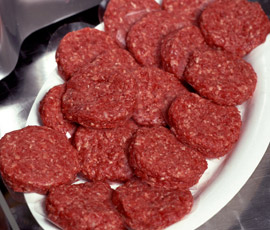Lessons still to be learned from horsemeat scandal

Lessons remain to be learned one year after the horsemeat scandal first hit the headlines, the leader of a committee of MPs has warned.
Tuesday 14 January marks the anniversary of the first horsemeat contamination in British food coming to light. Extensive testing in the subsequent weeks identified many processed meat products containing traces of horsemeat.
But the chairwoman of the cross-party Environment Food and Rural Affairs committee Anne McIntosh said that although Europe-wide investigations were continuing, no prosecutions had yet occurred.
Miss McIntosh added: “Five reports and 12 months later, it is a good time to take stock of the situation.”
EFRA recommendations
- FSA to be given powers to compel industry to carry out food testing when needed
- Large retailers must carry out regular DNA testing of meat ingredients
- Testing costs borne by industry and not consumers
- All test results submitted to FSA with a summary published on the retailers’ websites
- Horse passport system must change and a single national database be established across the EU
- The FSA handed powers to ensure all local authorities carry out food sampling each year
- Local authorities should adopt targeted sampling—testing
- The government should ensure there are sufficient analysts in the UK
- Better communication needed about the role of the FSA to eliminate uncertainty over responsibility for similar incidents
- The FSA should ensure communication with devolved administrations and its EU counterparts
Last week the committee heard from professor Chris Elliott, author of the latest review into the integrity of food supply, that action is still required to prevent future contamination, Miss McIntosh said.
“Retailers still need to work on smaller supply chains,” added Miss McIntosh. “By buying local we can more likely trace all sources of our food.
“Professor Elliott highlighted in particular the transportation of meat as being of highest risk together with the storage of meat slabs. There is also a need for more food analysts to be employed to reduce the risk,” she said
“In its report of July 2013 the EFRA committee called for those responsible for the horsemeat scandal to be identified and prosecuted in order to restore consumer confidence in the UK’s frozen meat sector.
“The committee felt the Food Standards Agency should become a more efficient and effective regulator and be seen to be independent of industry. The FSA must have the power to be able to compel industry to carry out tests when needed. It must also be more innovative in its testing regime and vigilant in ensuring every local authority carries out regular food sampling,” Ms McIntosh added.
More on the horsemeat scandal
